Is my preschooler autistic?
Your child's brain is unique to them and they will have unique skills, abilities, and needs.
An autistic child has a different way of understanding and relating to other people and the world around them. Autism is a lifelong condition. It affects different children in different ways.
Remember that these differences aren’t always negative. Your autistic child might need support to thrive but thrive they can!
Spotting the signs
You may notice some early signs of autism in the preschool years.
Signs and symptoms must be present across different settings. For example at home, nursery, playgroup and with other family members.
Autistic children have a combination of different traits which means that no two children are the same. These can look different in girls and boys.
If you have an autistic child then you may notice a combination of some or all of the following:
- Language delay. Use fewer words than would be expected for their age
- Loss of speech. For example using single words when they used to use 2 to 3 word sentences
- Repeat a set of words or phrases
- Does not respond to others when their name is called
- Does not smile or respond to other people's facial expressions
- Rejects cuddles when offered, although may ask for cuddles themselves
- Little or no awareness of personal space
- Doesn't like others entering their personal space
- Little interest in others. Does not initiate play with other children. Prefers to play alone
- Less or no imagination when they play
- Doesn't enjoy things other children seem to enjoy, for example birthday parties
- Less eye contact
- Rigid and repetitive behaviours, for example hand flapping, rocking, spinning or finger flicking
- Overly focused, unusual or limited interests
- Extreme emotional reactions to a change in routine
- Over or under reaction to sensory stimuli, for example sounds, smells, tastes, and textures
Spotting your child's strengths
It's important to look for your child's strengths. These may include:
- An ability to focus intently on areas of interest
- An attention to detail
- Creative thinking
- Ability to recognise patterns
- Deep thinking, kind and empathetic. They may struggle to express their emotions but many autistic children feel things very deeply
- Effective problem solver. Autistic children need to solve problems on a daily basis, for example, 'how can I focus with all that noise?'
Diagnosis
- Start by speaking to your child's nursery or preschool for advice and support
- Speak to your health visitor
- Seek support according to your child's needs. For example Speech and Language Therapy for speech delay.
If you're not very worried about your child then watching and waiting for a bit longer may be suggested. During this time you, your family and your childcare setting can monitor your child's behaviour and development.
Waiting times for an autsim assessment can be long. While you are on the waiting list, you can still get support for your child.
Most services will work with your child and support you whether or not they have a diagnosis.
Autism assessment in your local area
Each area is different. Your health visitor or GP can refer your child for assessment. Preschool children will often be assessed by a paediatrician in the Child Development Service. Paediatricians will consider if there are any other health or development issues before recommending a full assessment for autism.
- Leeds Pre school children are assessed by a paediatrician in the Child Development Team.
- Bradford and Craven Children under 7 years old will be assessed by a paediatrician in the Child Development Centre.
-
Social Communication, Interaction and Learning team (SCIL) offers a range of support to schools, nurseries and childminders in Bradford. Individual support can be accessed for any child with communication and interaction needs. A diagnosis of autism is not necessary.
- Wakefield First fill out the social communication assessment referral form
- Kirklees
- Calderdale
Speak to your GP urgently if your child's development is going backwards and they are losing language or skills.
Further reading and resources
![]() NICE guidlines on When to suspect autism spectrum disorder in a preschool child?
NICE guidlines on When to suspect autism spectrum disorder in a preschool child?
![]() National Autistic Society advice on: Eating, Toileting, Stimming, Meltdowns and Sleep
National Autistic Society advice on: Eating, Toileting, Stimming, Meltdowns and Sleep
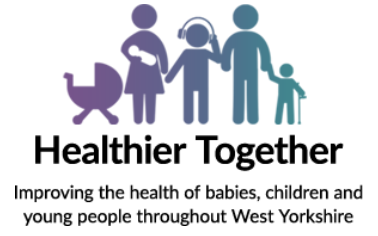 Healthier Together advice on: Toilet Training, Tantrums and Fussy Eating
Healthier Together advice on: Toilet Training, Tantrums and Fussy Eating
![]() BBC Tiny Happy People. Speech and language delays: Learning about your child and finding ways to communicate
BBC Tiny Happy People. Speech and language delays: Learning about your child and finding ways to communicate
![]() The Pablo cartoon series is about a 5 year old autistic boy. Watch the series on CBeebies.
The Pablo cartoon series is about a 5 year old autistic boy. Watch the series on CBeebies.
Get Help and Support
Visit our Support for neurodivergent children and their families page for a full list of support available.
Books
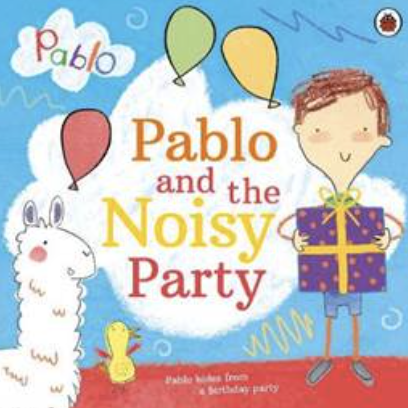 Pablo and the Noisy Party by Andrew Brenner and Sumita Majumdar
Pablo and the Noisy Party by Andrew Brenner and Sumita Majumdar
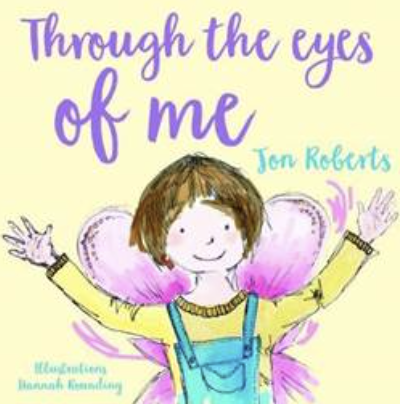 Through the Eyes of Me by Jon Roberts
Through the Eyes of Me by Jon Roberts
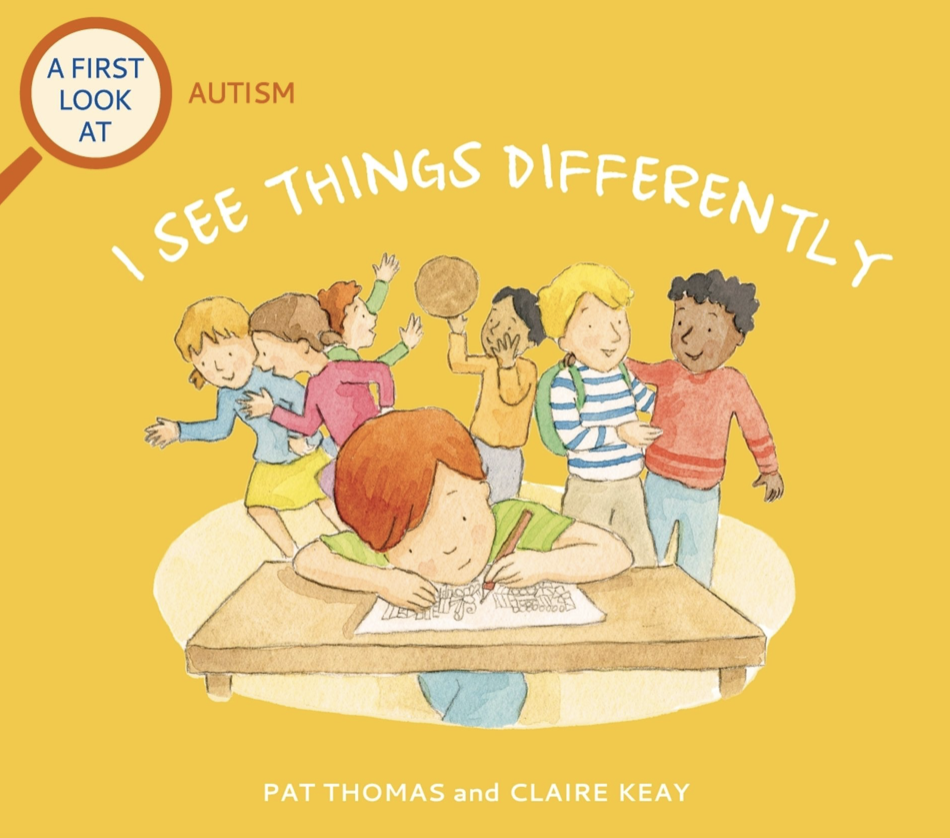 I See Things Differently by Pat Thomas
I See Things Differently by Pat Thomas
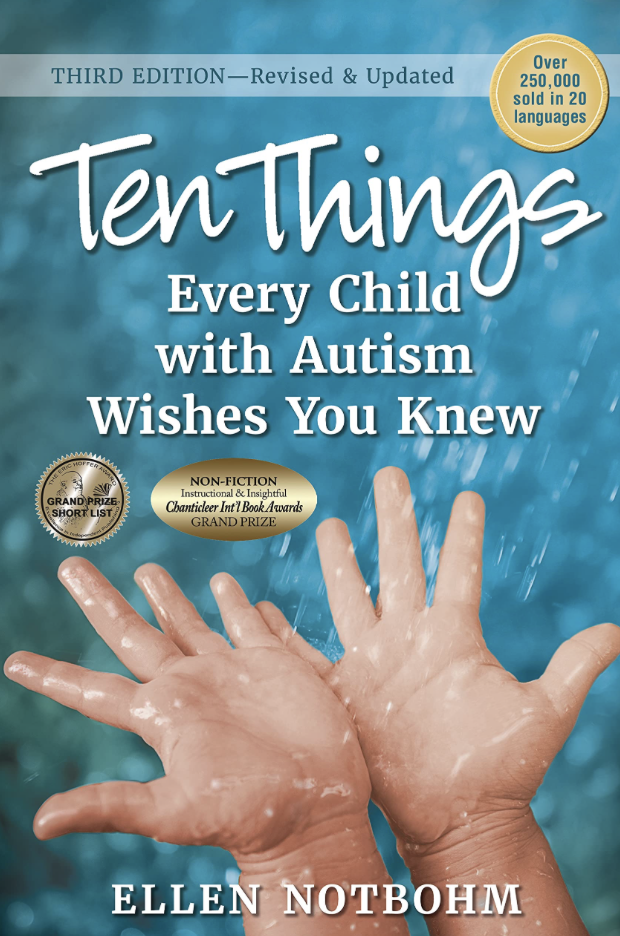 Ten Things Every Child with Autism Wishes You Knew by Ellen Notbohm
Ten Things Every Child with Autism Wishes You Knew by Ellen Notbohm
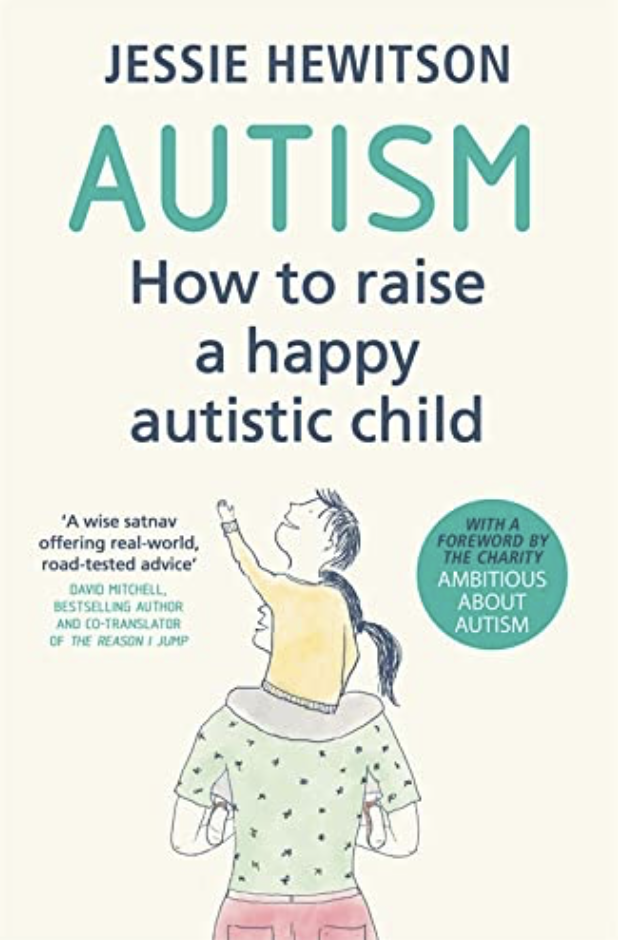 Autism: How to raise a happy autistic child by Jessie Hewitson
Autism: How to raise a happy autistic child by Jessie Hewitson



